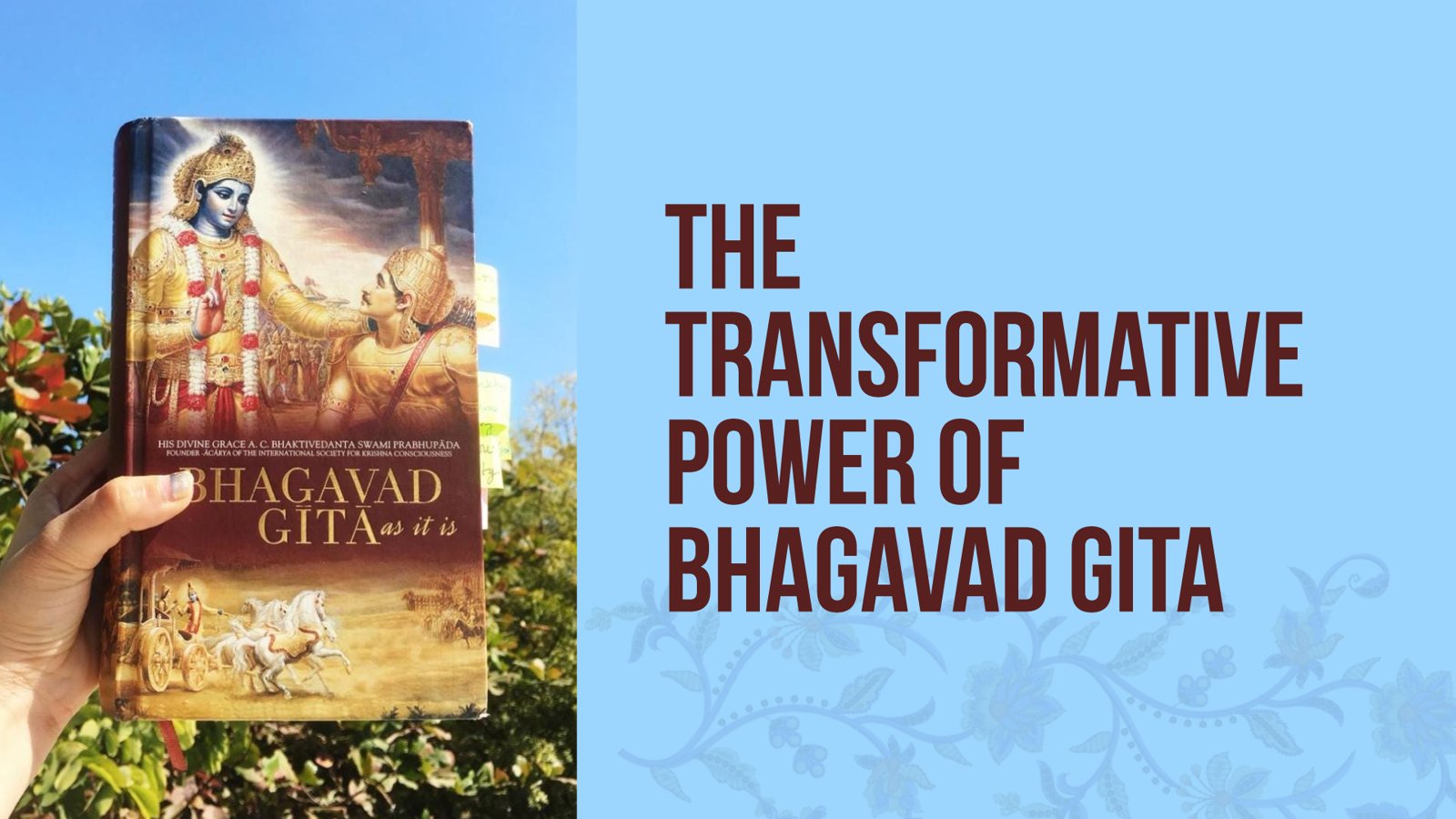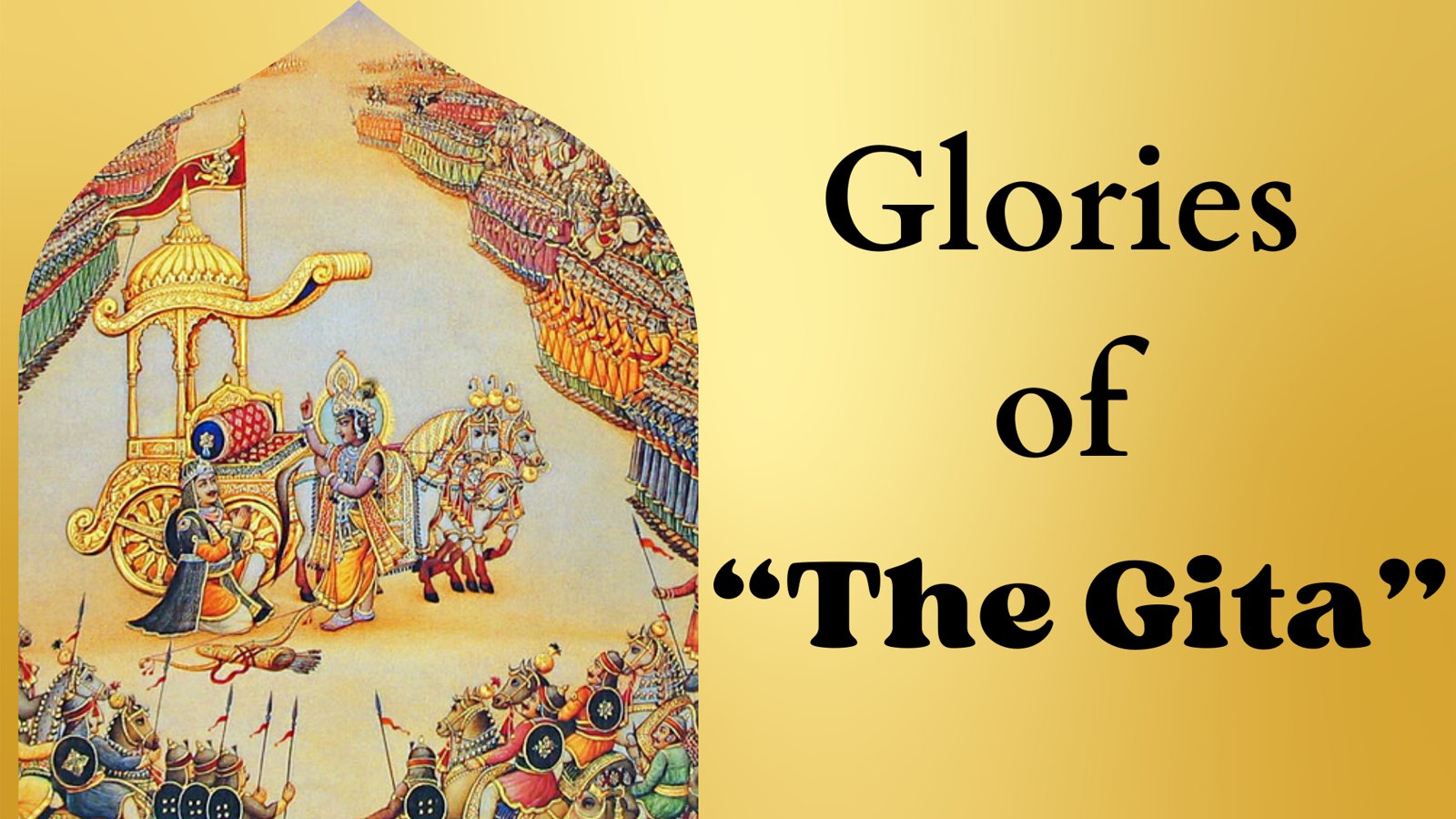The transformative power of Bhagavad Gita
By ISKCON Bengaluru Fri, 06 Dec, 2024
The Bhagavad Gita is a sacred text that is said to have the power to transform lives through its teachings on spiritual growth, self-awareness, and connection with the divine. ISKCON (International Society for Krishna Consciousness) uses the Gita to share its wisdom through educational programs, and aims to help people cultivate inner peace and resilience.
The Gita's teachings can help people:
Find patience
By connecting with a higher power, people can find patience in times of adversity.
Reduce stress and anxiety
The Gita's teachings on self-control, detachment, and acceptance can help alleviate stress and anxiety.
Promote self-awareness
The Gita encourages introspection, helping individuals understand themselves and their thoughts, emotions, and behaviors.
The transformative power of deep listening
When we are conversing with someone about a subject close to their heart, we can connect better with them through deep listening. Such listening enables us to not just understand what they are saying, but also to go further by identifying their emotions and sensing their underlying needs. Significantly, deep listening includes speaking appropriately, especially by asking questions, so that both listener and speaker can become joint investigators of their inner terrain.
As our inquiries progress, we become better attuned and equipped to listen holistically to them; to their words, emotions and needs. By connecting in this way, we can establish a profound connection with them. When they feel not only heard but also understood, they become more receptive to hearing and understanding us in return, thereby progressing on the path to inner transformation.
In the Bhagavad-gita, such deep connection and transformation are exemplified. Initially, Arjuna expresses his reservations about engaging in battle, and Krishna responds aptly by encouraging him to delve deeper. Interestingly, Krishna’s approach is counter-intuitive — he reproaches Arjuna for succumbing to the weakness of cowardice. While that’s a probable motivation for someone resolving to not fight just before a war, that is not Arjuna’s motivation. Krishna knows that, but he wants Arjuna to articulate his concerns. Therefore, he voices what would be most onlookers’ inference about Arjuna’s motivation.
On hearing Krishna’s words, Arjuna responds almost indignantly, insisting that his concern is far deeper and greater: he is concerned that fighting might be ethically questionable, if not regrettable (02.04-05). While voicing those concerns, he recognizes the ethical complexity of his situation — and admits his inability to figure his way out (02.06).
This ethical impasse impels him to go deeper still and articulate his need: it is to know about dharma, the responsible thing to do (02.07). He contemplates existential questions about what is right and what will bring meaning and value to existence. It is at this profound existential level that Krishna provides answers to Arjuna.
Arjuna feels heard by Krishna, and the resulting relief catalyzes him to open his heart and be receptive to Krishna’s guidance. Empowered by Gita wisdom, Arjuna rises from ambiguity about circumstantial duty to certainty about the meaning and purpose of life — and what they mean for him on the battlefield.
Summary:
The Gita provides us a model for transformative conversations based on deep listening that hears not just words, but deeper emotions and still deeper needs.
Think it over:
What are the various levels at which we can listen?
How does the Gita demonstrate the transformative power of deep listening?
What can you do to make your conversations more transformative?
02.07: Now I am confused about my duty and have lost all composure because of miserly weakness. In this condition I am asking You to tell me for certain what is best for me. Now I am Your disciple and a soul surrendered unto You. Please instruct me.
Ref taken from: HG Chaitanya Charan Dasa's gitadaily.com
Leave a Comment
Let me hear you 😊



0 comments